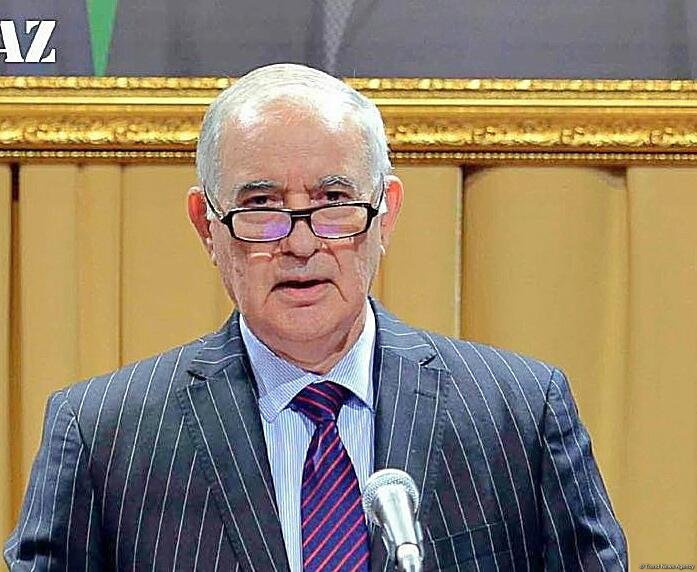BAKU, Azerbaijan, July 31. Azerbaijan strengthens its role as an energy bridge between Central Asia and Europe, political analyst Azer Garayev told Trend.
According to him, amidst the changing global energy landscape, Azerbaijan is becoming one of the main energy and transit hubs in the Eurasian space, and with sanctions intensifying, geopolitical risks rising, and the shift to alternative energy sources accelerating, Central Asian countries are turning to Baku to ensure the stability of their energy exports.
"Modern transportation and energy infrastructure, favorable geographic location, and internal stability enable Azerbaijan to serve as a strategic bridge between energy-rich Eastern countries and energy-dependent Western nations. Therefore, Kazakhstan, Uzbekistan, and even Turkmenistan view Baku as a key gateway to Europe.
Starting in 2025, Kazakhstan plans to increase its oil exports via the Baku-Tbilisi-Ceyhan (BTC) pipeline from 1.5 million tons to 1.7 million tons. This decision has been officially approved by the Kazakh government and welcomed by Azerbaijan. BTC is considered one of the most reliable and tested routes for transporting oil from the South Caucasus to Europe. This increase is a logical step against the backdrop of risks associated with routes passing through Russia. Kazakhstan is seeking alternatives to avoid dependence on a single transit route. The BTC pipeline, having been modernized technically and remaining geopolitically neutral, presents such an alternative," he noted.
Garayev also highlighted that trilateral cooperation between Azerbaijan, Kazakhstan, and Uzbekistan in exporting green energy to Europe has become a significant direction for regional partnership.
"Under this initiative, the parties have agreed to coordinate efforts in the production, storage, and transportation of electricity generated from renewable sources, such as solar and wind power plants. The transmission of this energy to European markets will pass through Azerbaijani territory. Azerbaijan is not just a transit country in this process but also an active participant, playing a key role with its energy reception and transmission infrastructure as well as its domestic renewable energy development programs.
Azerbaijan holds a central role in this project; the main flow of energy will transit through its territory, and its internal energy infrastructure will regulate this flow and store part of it as reserve. The European Union also attaches great importance to this project. Amid halted energy cooperation with Russia, the EU is in serious need of reliable renewable energy sources to reach its carbon-free future targets. This cooperation opens new export opportunities for the three countries, reduces Europe’s dependency on traditional suppliers, and further strengthens the roles of the South Caucasus and Central Asia in the global energy system," he mentioned.
Garayev pointed out that Turkmenistan, another Central Asian country, has significant potential for energy cooperation with Azerbaijan.
"In particular, there are opportunities for transiting Turkmen gas to Europe via Azerbaijan. At the same time, Turkmenistan can also join cooperation in the renewable energy sector and participate in initiatives aimed at exporting green energy to Europe. In recent years, the country has launched several solar and wind energy projects. However, no concrete agreements or steps have been taken in this direction yet. Nevertheless, Azerbaijan is open to such cooperation, and the expansion of energy dialogue between the parties in the future cannot be ruled out," he stated.
Speaking about Azerbaijan’s energy infrastructure, the political analyst emphasized that the country has invested heavily in the development of its transport and energy infrastructure in recent years.
"The Baku International Sea Trade Port has been modernized, the capacity of oil and gas terminals has been increased, and railway and road transport systems have been optimized. In addition, major projects such as the Baku-Tbilisi-Ceyhan oil pipeline, the Southern Gas Corridor (TANAP and TAP), the new energy routes through the Azerbaijan–Georgia–Romania corridor, and the planned construction of a submarine power cable across the Black Sea all reflect Azerbaijan's intention to further advance in this area. At the same time, special attention is being given to sustainability and digitalization.
The European Union has officially recognized Azerbaijan as a strategic partner in the energy sector. In 2022, a Memorandum of Understanding was signed to double the gas supply to Europe by 2027, reaching 20 billion cubic meters. Azerbaijan is also considered a key transit hub for alternative and green energy under the 'Black Sea Energy' project. The EU is promoting the development of this infrastructure with technical and financial support under its 'Team Europe' and 'Global Gateway' programs," he noted.
Discussing Azerbaijan's role in transit, Garayev pointed out that Central Asian countries like Kazakhstan and Uzbekistan view Azerbaijan not only as a transit partner but also as a regional strategic ally.
"Azerbaijan offers political stability, access to European markets, a neutral stance, and high-quality infrastructure. At the same time, Baku is deepening coordination with regional countries through the Organization of Turkic States and the Shanghai Cooperation Organization. By 2030, Azerbaijan’s energy infrastructure transit capacity could increase by 30–40 percent thanks to new ports, terminals, and corridors. In this context, the inclusion of Turkmenistan in oil and gas transit, the establishment of a corridor for exporting renewable energy from Central Asia to the EU, and Azerbaijan’s participation in hydrogen energy projects could be realized.
Consequently, Azerbaijan is steadily strengthening its role as an energy bridge between Central Asia and Europe. Its stability, infrastructural potential, and diplomatic engagement make the country a key transit and energy hub in Eurasia. Against the backdrop of Europe's growing demand for energy and Central Asia's efforts to diversify its export routes, Azerbaijan's role will only increase in the coming years. Baku is becoming an increasingly important strategic link and a reliable partner between East and West," Garayev concluded.







